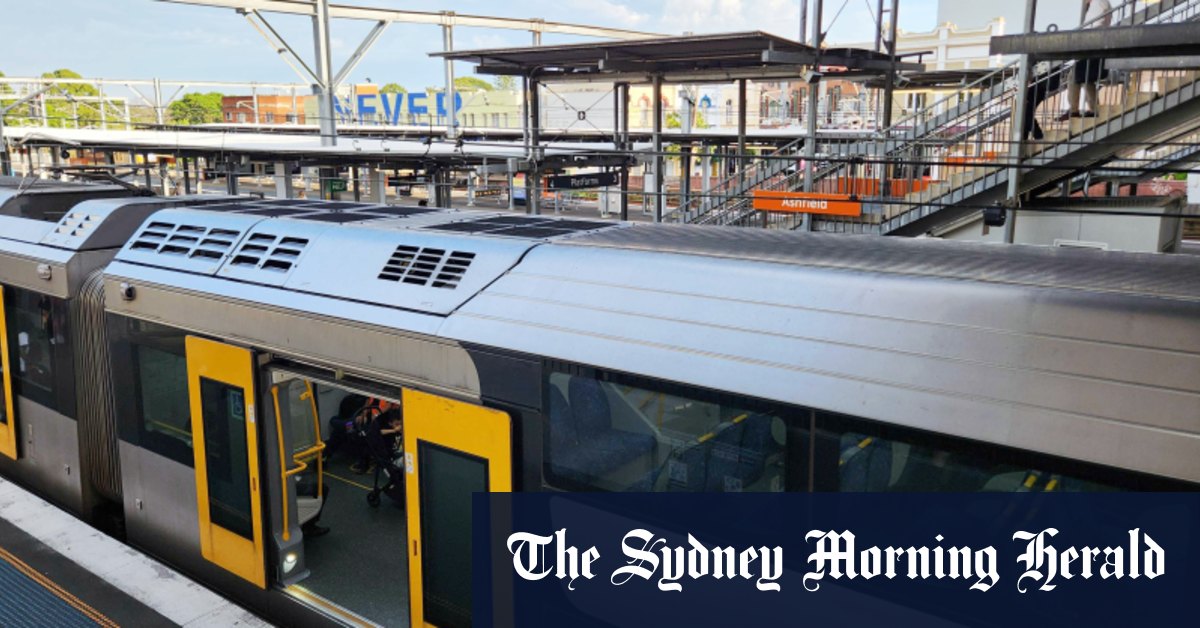Australia
Sydney train dispute continues as union and government refuse to back down on action

Ongoing Chaos in Sydney’s Train Network: A Standoff Between Government and Union
The situation on Sydney’s train network remains dire as the state government and the Rail, Tram and Bus Union (RTBU) continue their heated dispute over pay negotiations. The conflict has left commuters stranded, frustrated, and searching for alternatives. The chaos reached a boiling point on Friday when hundreds of train drivers called in sick, leading to widespread delays and cancellations across the network. With zero percent of services running on time, the city’s transportation system came to a virtual standstill. Sydney Trains chief executive Matt Longland described the situation as a “very significant uptick in sick leave,” highlighting the unprecedented scale of the industrial action. The disruptions persisted into Saturday morning, with sporadic cancellations forcing Sydney Trains to urge passengers to avoid non-essential travel.
A Breakdown in Negotiations: The Legal Standoff
Both parties returned to the Fair Work Commission on Saturday, following a failed attempt at resolution on Friday. The government and the RTBU are locked in a legal battle, with the state seeking to halt the industrial action under section 418 of the Fair Work Act. This section allows the Fair Work Commission to intervene and stop actions that are not protected by law. Despite the commission’s recommendation on Friday for the RTBU to withdraw its industrial action, the union has yet to comply. The government, on the other hand, has been accused of taking its own aggressive measures, including threats to reduce or cut off the pay of drivers who participated in the slowdown or failed to report for duty. The standoff shows no signs of abating, leaving commuters caught in the middle.
Commuters Bear the Brunt of the Dispute
The impact of the industrial action on Sydney’s commuters has been devastating. Hundreds of trains were delayed or cancelled, leaving thousands of people stranded or forced to find alternative modes of transportation. The chaos has been particularly challenging for those who rely on the train network for their daily commutes. Many took to social media to express their frustration, sharing stories of long waits, overcrowded platforms, and the financial burden of seeking alternative transport. The disruptions have also raised concerns about the broader economic impact, as businesses and workers alike struggle to cope with the unreliable service. For now, commuters are being advised to plan for lengthy delays and to avoid non-essential travel until the situation is resolved.
The Union’s Perspective: A Call for Fairness
In a statement on Saturday, RTBU spokesperson Toby Wearne accused the state government of “locking workers out and refusing them access to perform their duties.” The union has framed the industrial action as a response to what it sees as unfair treatment by the government. Wearne called on the NSW government to drop its aggressive stance and return to the negotiating table in good faith. The RTBU argues that the government’s actions, including the threatened pay cuts, are punitive and designed to intimidate workers rather than resolve the dispute. The union has reiterated its commitment to protecting the rights of its members and ensuring they receive fair compensation for their work.
The Government’s Position: Restoring Order and Accountability
The NSW government, for its part, has taken a firm stance in the dispute, arguing that the industrial action is unsustainable and disruptive. By invoking section 418 of the Fair Work Act, the government is seeking to restore order to the train network and hold the RTBU accountable for the chaos. The state has also defended its decision to reduce or cut off pay for drivers who fail to show up for work or deliberately slow down services. Officials argue that this measure is necessary to ensure accountability and to prevent a complete breakdown of the transportation system. The government has made it clear that it will not be swayed by what it describes as “aggressive and disruptive tactics” from the union.
The Road Ahead: Uncertainty and Potential Consequences
As the standoff between the government and the RTBU continues, the future of Sydney’s train network remains uncertain. The Fair Work Commission’s intervention on Saturday may provide some clarity, but it is unlikely to bring an immediate end to the dispute. The ongoing chaos has raised important questions about the balance of power between workers and employers, the role of industrial action in resolving disputes, and the impact on the public. For commuters, the hope is that a resolution can be reached soon, restoring a sense of normalcy to the city’s transportation system. However, the bitter nature of the conflict suggests that this may not happen anytime soon. In the meantime, Sydney’s train network—and the people who rely on it—remain caught in the middle of a high-stakes battle.











